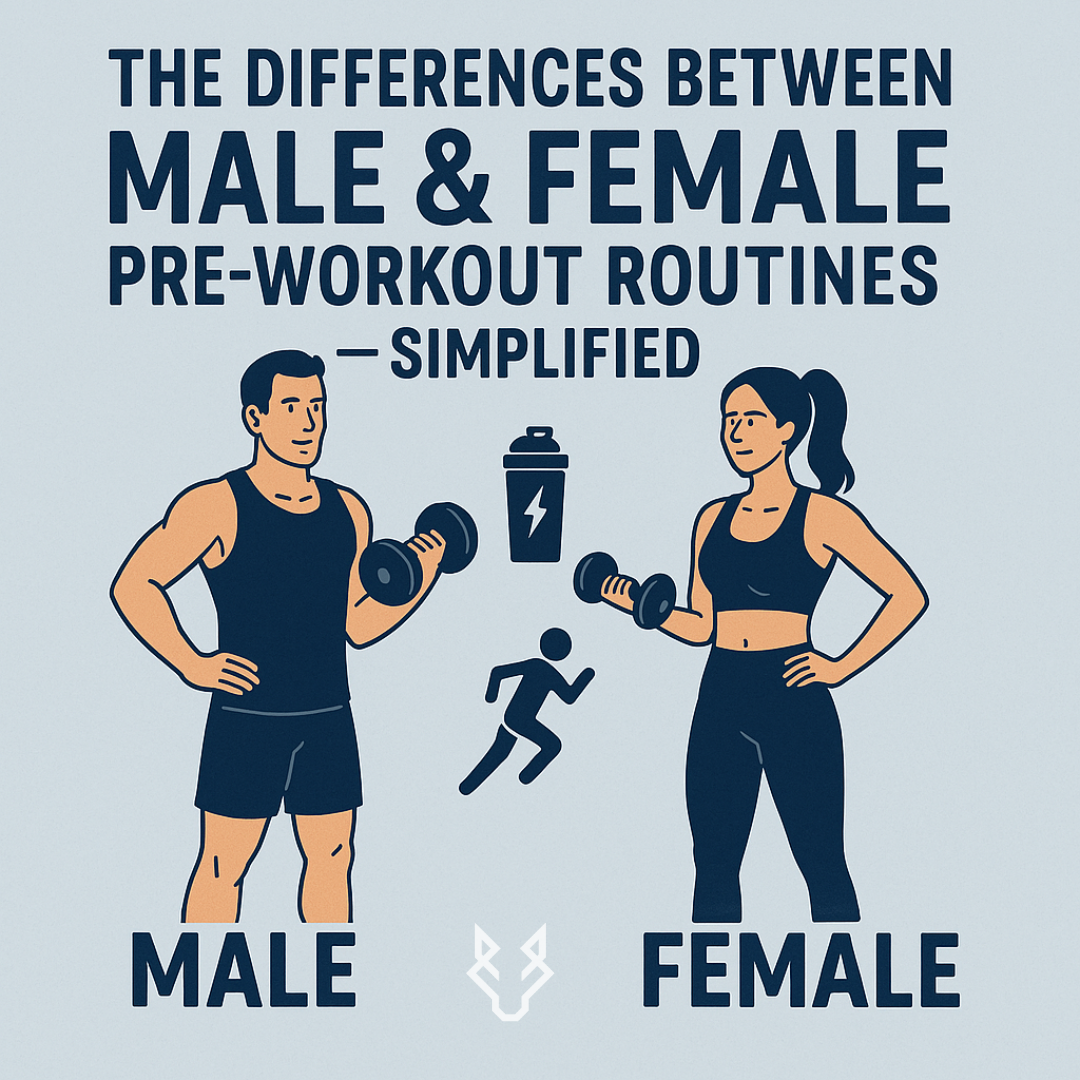“Pre-workout routines shouldn’t be one-size-fits-all—especially when it comes to gender.”
While the basics of fuelling and preparing for a workout are similar across the board, there are subtle yet important differences between what men and women may benefit from before training. These differences often come down to hormonal variations, energy needs, and training styles. Let’s simplify the key differences so you can prep smarter and perform better.
Fueling Needs: Same Goal, Slightly Different Strategy
Reality: Both men and women benefit from pre-workout fuel—but how the body uses energy differs.
- Men often rely more on carbohydrates and may benefit from a slightly higher-carb pre-workout meal.
- Women tend to use fat more efficiently during lower-intensity exercise and may benefit from a balanced meal with protein + fat + moderate carbs (especially in lower hormone phases).
Tip: The key is listening to your body and not training fasted if it leads to fatigue or poor performance.
Hormones Impact Readiness
Reality: Female hormone cycles can influence energy, strength, and focus.
- In the follicular phase (first half), women may feel stronger and perform better—perfect time to push intensity.
- During the luteal phase (second half), energy might dip, so a longer warm-up and gentler ramp-up may be needed.
Tip: Men have more consistent hormone levels day-to-day, so their pre-workout structure often stays the same. Women benefit from adapting slightly based on their cycle.
Supplement Use Isn’t One-Size-Fits-All
Reality: Pre-workout supplements often cater to male training goals—high caffeine, nitric oxide boosters, etc.—which might not always align with what women need.
Tip: Women may prefer lower caffeine or natural alternatives (like coffee or green tea), and should check for additives or fillers that don’t align with their needs or sensitivities.
Conclusion:
Pre-workout routines aren’t drastically different between genders—but the small details matter. By understanding how your body responds to fuel, hormones, and supplements, you can tailor your routine to train smarter, not harder.



